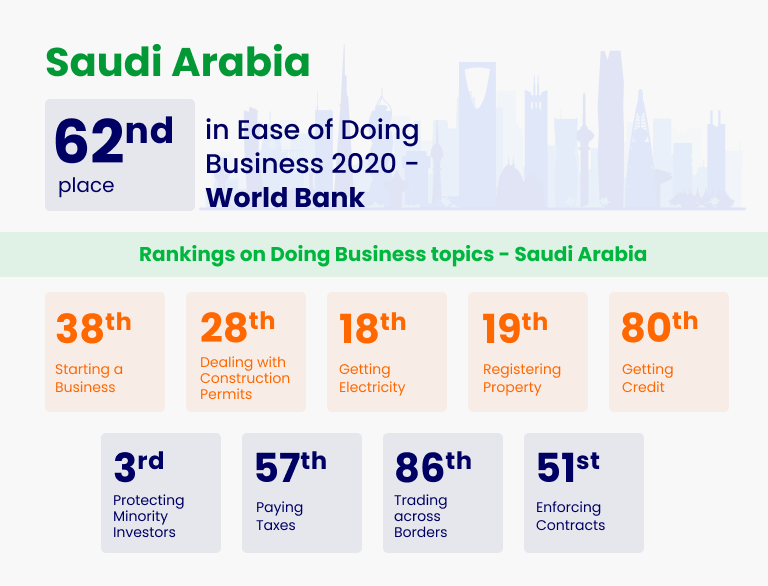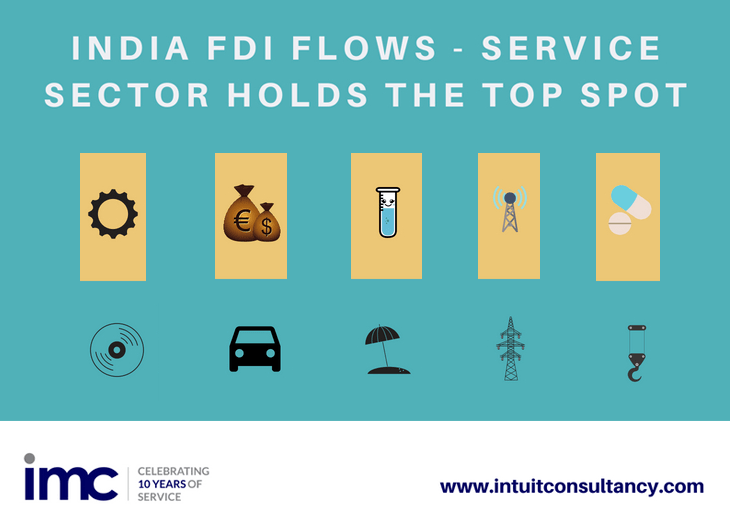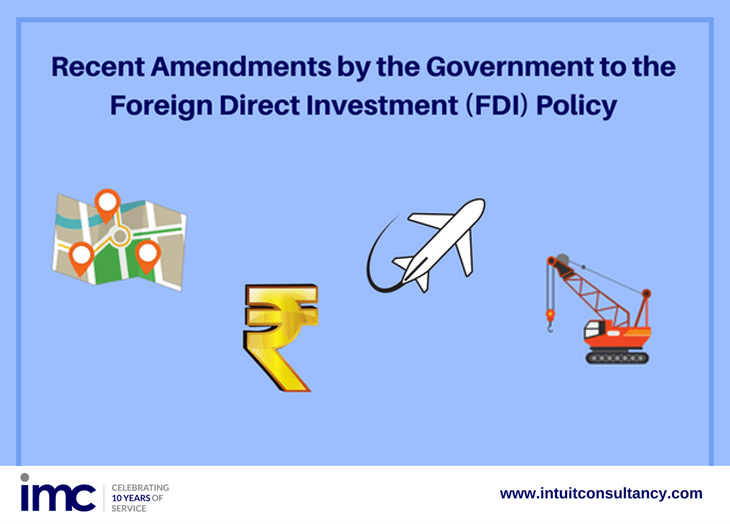
- Newsletter, U.A.E
- July 10, 2018
There is a lot of tax evasion that happens cross-border and it is one of the major challenges faced by many governments of various countries. Though a lot of globalisation of financial transactions has happened, the Organisation for Economic Cooperation and Development (“OECD”) has come up with some “Common Reporting Standards” (“CRS”) in July 2014, which are a global reporting standard for automatic exchange of financial account information. The goal for announcing CRS is to tackle this issue of avoidance of taxes through offshore financial structures. Usually referred as Global FATCA, the CRS is based on the US Foreign Account Tax Compliance Act (“FATCA”), and its scope is large enough to take care of the necessities for various nations.
So what is AEOI/CRS?
AEOI is the Automatic Exchange of Financial Account Information, and CRS as we just spoke about, stands for Common Reporting Standards. Automatic exchange of information is the process involving transmitting methodical and timely information about taxpayers by their source country to their residence country. This information ranges from dividends to interest, etc. This exchange helps in providing timely information about any miss or non-compliance of taxes.
AEOI/CRS is thus a global standard which calls on various governments to get the required information from their financial institutions and immediately exchanges the collated information automatically with the CRS participating countries every year.
This standard helps in setting out the following:
- Financial account information that needs to be exchanged
- Financial institutions that are needed to report
- What are the various kinds of accounts and taxpayers which are covered?
- Usual due diligence process steps to be followed by the various financial institutions
As an international initiative to share tax information, the goal of CRS is to account for the assets and incomes that are being earned and saved out of the home country or overseas and it brings out one common global standard for exchanging all the financial information. All the financial institutions are needed to report about all the account holders who pay taxes and stay in one of the countries, which are in scope for CRS except its home country.
How does CRS affect UAE?
Back in December 2016, the Ministry of Finance of UAE issued Guidance Notes for CRS so that it can provide all the relevant information regarding the execution of AEOI for the purpose of taxation. Over 100 countries including UAE committed to put CRS into practice with the first-ever exchange scheduled by UAE in September 2018.
The Ministry of Finance is leading and overseeing the CRS execution with the below-mentioned financial institution’s regulators:
- UAE Central Bank
- Securities and Commodities Authority
- Insurance Authority
- Dubai International Financial Centre (“DIFC”)
- Abu Dhabi Global Market (“ADGM”)
There is also a framework that is given to the regulators for CRS execution and also reporting process by the financial Institutions.
All the participating financial institutions have to comply with the given CRS guidelines while reporting the CRS information to the required regulatory authorities up to 30 June 2018.
How does CRS function?
- To be able to implement CRS, it is important to address the following questions:
- Who all are obliged to report?
- Which type of accounts are under control and reportable?
- Which due diligence guidelines are relevant here?
- What all information is required to be reported?
To help various parties comprehend and implement CRS, OECD has printed the following documents:
- Model Competent Authority Agreement (CAA) – a global legal guideline and framework for the automatic exchange of CRS information
- The Common Reporting Standard (CRS) – rules for reporting and due diligence
- The Commentaries to the CAA and the CRS – additional material to explain and support in interpretation
- The CRS XML Schema User Guide – various technical solutions which might be required in reporting the information in a standardized format
Who all does the CRS affect and how?
Implementation of CRS affects the financial services industry in a big way, especially the banking sector and financial institutions, including the customers. Though the impact on various institutions could vary depending on the customer base, size, global base, their compliance issues mostly remain the same for various financial institutions.
Who all are impacted by it?
Financial Institutions who have to report
There are some financial institutions that are under the purview of CRS regulations. The four major categories are:
- a custodial institution
- a depository institution
- an investment institution or entity
- a specified insurance company
Any financial institution that is not exempted from CRS is considered as a Reporting Financial Institution. As per the definitions mentioned in the CRS regulations, the impacted institutions could be custodians, banks, other institutions like insurance companies, non-banking deposit entities, mutual funds and hedge funds, other collective investment vehicles, private equity funds, investment managers, and brokers, or trusts, etc.
Ideally, CRS would impact any Reporting Financial Institution which is either:
- a resident of the UAE and excludes its foreign branches; or
- the non-resident entity that has set-up a branch in the UAE.
Customers
All the customers of these financial institutions would be impacted; and this includes individual and other account holders like companies and trusts. But the account holders who are excluded are:
- Tax-paying residents of the USA, whose reporting is done under FATCA regulations
- Tax-paying residents of the UAE
What is the impact?
Impact to the Reporting Financial Institutions
The institutions have to collect all the relevant information from all the account holders (was to be done as early as 1 January 2017) and are permitted to contact them again in case they need some more information like the tax residence status). These institutions have to go through their due diligence process mentioned in the CRS regulations and then report the same on financial accounts that are held by the account holders (who are basically tax residents of some other country or jurisdiction).
Impact to the Customers
If the customers have accounts with some financial institutions as a non-resident of that country or jurisdiction, then the details of their accounts have to be mandatorily reported to the tax authorities of that place or residence. The customers are required to submit accurate and up-to-date information to the financial institutions to evade disclosing any extra information to irrelevant jurisdiction.
Who is considered a UAE resident?
Per the legal definition, a UAE ‘Resident Person’ means:
- Any individual or person who is a UAE citizen or national or is a resident of the UAE and possesses a valid Emirates ID card and a valid Residency Visa.
- An entity which is set up and registered and is functioning and managed in the UAE.
What all information is needed to be reported under CRS?
Here is the list of the information that needs to be collected and then reported by all the financial institutions:
- Name, complete address, date and place of birth of the reportable individuals, jurisdiction of tax residence, and Tax Identification Numbers (TINs)
- Account number
- Name and identification number of the reporting financial institution
- The account balance as on the end of the relevant calendar year or closure amount of the account in case it as closed during this period
- Details of specific payments made in the account
What are the implementation timelines applicable in the UAE?
All the reporting financial institutions have to submit their first round of CRS reporting data maximum by 30 June 2018 (this is applicable for the reporting period ending on 31 December 2017). Then, they need to report every year only once by 30 June of every subsequent year being the next reporting due date. The other important timelines are:
- Pre-existing accounts as on 31 December 2016 must have gone through the due diligence procedures.
- All the newly-opened accounts on or after 1 January 2017 have to follow the steps of the due diligence process.
- The first reporting period comes to an end on 31 December 2017.
- The review process of the existing High-Value Individual Accounts (as at 31 December 2016) is mandated to be done before 31 December 2017.
- First level of exchange of information by the UAE authority to the reportable jurisdictions is to be done on or after 30 September 2018.
- The assessment and evaluation of the existing Lower Value Individual Accounts (as at 31 December 2016) needs to be done before 31 December 2018.
- The assessment and evaluation of existing Entity Accounts of Higher Value (as at 31 December 2016) needs to be finished till 31 December 2018.
What are the differences between CRS and FATCA?
As a matter of fact, U.S. Department of Treasury and Internal Revenue Service announced FATCA or the Foreign Account Tax Compliance Act in the year 2010. The purpose was to promote improved tax compliance and prevent the U.S. citizens from evading or avoiding their income or asset taxes. Whereas, CRS or the Common Standard on Reporting and Due Diligence for Financial Account Information is part of an international standard that OECD proposed last year, at the recommendation of the G8 and the G20. In this case, the aim was cross-border exchange of information on financial accounts every year. Though the standard does have a lot of similarities with FATCA, it is at times also informally termed as GATCA or the global version of FATCA.
The three broad differences between these two are:
- FATCA needs a financial institution to look for U.S. citizens; but in case of CRS, there are over 90 countries committed so far, and it does need a broader scope.
- The definition of a “reporting financial institution” under CRS is different than in FATCA. For example, if your entity or company does not need to report its financial accounts under FATCA, it may be has to do so under CRS.
- As of now under CRS, there is no de minimis limit. However, FATCA is only applicable for individual accounts that have balances over $50,000 – and companies have different limits.
How can IMC help?
Our experienced team with CRS and FATCA experts can advise and guide you with the step-by-step procedure of the implementation of CRS and FATCA. We can not only assist you with your reporting requirements but also your reporting obligations of various jurisdictions. Not only that, our team can help you with all the technical reviews, and preparations of all the required self-certification forms and onboarding procedures. We can also help you with assessments and gap analysis and remediation. You could get in touch with us if you need to classify your entity correctly or register your organization or enterprise with the US Internal Revenue Service (IRS) to get a Global Intermediary Identification Number (GIIN).

- Newsletter
- July 9, 2018
Do you know what the Middle East physical security market’s valuation stands at? It is touted to be valued at a whopping $10.9 billion by the year 2020, though it was at $3 billion in 2014, which shows a huge growth of 23.7 percent.
These days CCTV and network cameras have become an integral part to run not only a showroom, business, and other organizations. With so many options available in the market, the installers should be able to act as advisors for their customers and assist them in providing the best option or security solution.
Video surveillance plays a major role in the Middle East region because people want to use the latest technology-based security solutions to maintain their security. Another thing that is required is an attitude shift in thinking of network cameras as a major component in a security solution, which helps to take care of every customer’s own specific requirements. To take care of this, the system integrators need to closely understand the customer requirements and also participate in planning and the pre-installation stage so that they could suggest and offer the best-suited option that helps the customer to guard their business, and also enjoy other benefits other than security.
New ultra-compact security products are also being launched these days, which are ideal for retail showrooms, hotels, and banking sector in the Middle East. In addition, high resolution network cameras offer high quality monitoring along with detailed images, that too in very dim or low light.
Most of the ranges of these network camera let you do simple integration with various VMS platforms. If you are looking for advantages beyond just security of your business like site management and behavior analytics, then this is key to get a reliable and automated analysis. Today, retail holds the major chunk the economy, and there, analytics are used to manage queue management, footfall monitoring, and even store-design optimization.
The main factor when buying a network video surveillance is the quality of the images, especially in very low or dim light conditions. But the good news is that the video surveillance technology has advanced a lot bringing innovations like 4K, which promise to bring a huge change in the security industry by offering higher image quality as compared to the existing full HD products.
4K network cameras have a resolution of 3840 x 2160 and can deliver about 8 megapixel resolution images. This means much clearer images while on a live stream, even clearer clarity in case of zoom images and also a wider vision field. This can even enhance the identification of an individual, a vehicle or a car number plate in dark. That’s not all! The 4K used in a 360º panoramic dome camera helps to reduce the total number of CCTV cameras that a company would need, thus making a huge impact on the overall security costs.
The technology, especially in terms of network video solutions, is growing and evolving at a very high speed. There is better contrast, lesser distortion, higher lens and sensor quality; and all this results in improvements in the accuracy of analytics and more trustworthy automated analysis. These factors will help the IP video surveillance systems to become a very important part of any business by not only being an imperative security tool, but also a precious business driver which can deliver many new business advantages.
With rich and diverse experience in helping to set up companies in Dubai, we specialize in setting-up the CCTV Camera Installation and maintenance for your business or organization in Dubai.
So be it a new business setup in Dubai or a DMCC company formation, just get in touch with us to get expert assistance.

- Newsletter
- July 9, 2018
The Kingdom of Saudi Arabia or KSA announced its final Value Added Tax (VAT) law in July 2017. Saudi Arabia’s General Authority of Zakat and Tax (GAZT) has opened the VAT registration in Saudi Arabia starting from September 2017. There is an electronic registration process and there is a specific website for VAT purposes. All businesses that have annual revenue of above SAR 375,000 (USD 100,000) were mandated to register by December 20, 2017. Let’s see some of the main highlights.
- According to Article 2, all imports of goods and services coming into the KSA are subject to VAT.
- Per Article 53, the VAT is effective from 1 January 2018.
- The standard VAT rate is 5 percent. However, there are some specific goods and services that come under zero rate or are exempted from the VAT.
- As per Article 53, all individuals who are to be registered for VAT purposes should first register themselves with the General Authority for Zakat and Tax (GAZT) and that too within 30 days from the date when the law was issued, that is, 30 days from July 28, 2017.
- The enterprises or company’s which fail to register within the time limit or specific period have to pay a fine of SAR 10,000.
- As per Article 21, the VAT will be due if an invoice was raised or payment was made before the registration date but the actual date of supply of goods or services was after the implementation or registration date.
Who is eligible to register for VAT?
All companies, enterprises or entities that have annual taxable revenue of over SAR 375,000 (USD 100,000) have to compulsorily register.
However, all taxable individuals whose taxable supplies are over the mandatory registration limit but not SAR 1,000,000 (USD 266,667), would be exempted from registering for a year.
Buy it is compulsory to register for all taxable individuals whose annual taxable supplies are more than SAR 1,000,000 (USD 266,667).
Businesses or enterprises with an annual turnover going above SAR 187,500 (USD 50,000) could voluntarily register with the GAZT. They have an advantage from recovering input VAT on the purchases they make.
Taxable persons with annual taxable supplies of less than SAR 187,500 (USD 50,000) do not have to register for VAT.
Are non-residents required to register?
Yes, even non-resident enterprises that are performing economic activities though they do not have any fixed place of business in the Kingdom are needed to register, in case they are obliged to pay VAT. All non-resident taxable individuals should hire a tax expert or representative who is working and established in Saudi Arabia and is also approved by the GAZT.
When and how often is the VAT to be reported?
Taxable individuals over an annual taxable income over SAR 40,000,000 (USD 10,666,667) are needed to file the VAT returns every month. All other taxable people need to file the VAT returns only every quarter or once in a three-month period.
In case of monthly returns for the tax period starting from 1 January 2018 to 31 January 2018, the VAT return should be definitely filed before 28 February 2018. In case of quarterly returns, where the tax period is 1 January 2018 to 31 March 2018, it is necessary to file the VAT return before 30 April 2018.
The VAT returns have to be submitted through the GAZT e-portal.
Preparations for VAT
Businesses should first prepare to meet the needs to conform to their tax obligations. They could need to make any required modifications to their operations, processes, financial management or accounting, ERP technology, etc. It is important to first understand the affects of the VAT and tune up their process model to the necessary compliance requirements. If you have any questions or doubts regarding VAT registration in Saudi Arabia, just do not worry; the expert team at IMC can help you in this transition and filing your VAT returns without any hassles.

- Newsletter
- July 7, 2018
The UAE’s Federal Tax Authority (FTA) rolled out VAT on 1 January 2018. Since then, there has been a need for existing companies to plan for VAT impact on their businesses. Even new companies have to ensure how their businesses would be affected if they are looking to foray into the UAE markets. IMC Group offers proficient VAT consulting services to companies all over Dubai. Our efficient team has exposure to different tax regimes in the Middle East. This empowers us to advise and assist businesses so that they do not suffer from charges due to non-compliance. Our trusted team can dedicate themselves to providing your company with strategies that will benefit your business in the long run.
Services We Offer
- VAT Impact Assessment on your business in UAE
- Implementation of VAT compliant accounting software for your business
- Implementation of VAT
- VAT Book-keeping services so you don’t have to pay any penalties
- Staff training on VAT in UAE
- Filing of VAT returns as per the UAE VAT laws
- Company registrations for VAT in UAE
- Designing the in-house VAT structure of your company
- Assessment of VAT on your sales price and profitability
How We Can Help?
Evaluate & Plan:
- We will identify all the primary VAT touch points that can impact your business.
- We will structure your business in a tax efficient manner.
Design, Develop & Train:
- Train and equip your staff so they can manage under the new tax regime.
- Design an effective strategy specific to your business needs.
Implementation & Compliance:
- Ensure all the compliance practices are in line with the VAT requirements.
- Handle VAT registrations and preparation and filing of VAT returns.
The VAT legislation in UAE is still in its nascent stages. Owing to this reason, many corporates are still unclear as to the requirements involved in VAT compliance. Such compliances include proper documentation and filing of monthly or quarterly returns. IMC Group has a team of specialised experts who can assist your businesses to be VAT compliant. Whether it be in-house recording or other compliance processes, we can make sure that you don’t default on your tax payments.
With over 35 years of experience in providing services in UAE and overseas, we have the expertise and insight to help your business. We also help new organizations who looking to expand by providing our services of company registration in Dubai. We fully understand the ins and outs of the new VAT regulations. Our certified team of highly qualified professionals can develop a proactive strategy for your company so you can assess the impact of VAT on your business.
Get in touch with us today and book your appointment for our VAT consultancy services in Dubai.

- Newsletter
- July 7, 2018
The prosperous and open investment and economic climate of Saudi Arabia has given rise to a huge rise in foreign investments. Investors don’t want to miss the business development opportunities and hence they perform due diligence to make sure that they form the correct kind of entity so as to structure their investment in a manner that suits the best to their objectives and is also viable.
A foreign investor can think of considering the following options: setting up a limited liability company or a joint-stock company. Though for this choice, there are many factors like what is the proposed number of shareholders, what is the management structure and what are the proposed activities/tasks of the company. Another factor to be considered is to include Saudi equity participation for activities such as for the import, export, promotion, marketing, and sale of products or services.

However, there are cases when opening a branch office would be the best or most viable solution. So let’s see some advantages and disadvantages of both the types of branches.
- Permanent entity (a ‘Permanent Branch’); and
- Technical & Scientific Services Offices (‘TSSO’)
Permanent Branch
A Permanent Branch is a branch which is an extension of the parent company’s office. The minimum start-up capital is approximately SAR 500,000, which is needed to usually satisfy SAGIA’s initial requirements.
Technical Scientific Services Office (TSSO)
A TSSO is considered when there is a registered commercial agency distribution agreement done between two parties – a foreign manufacturing company and a registered distributor who is a Saudi national and is dealing in the local markets.
A TSSO:
- It is only used in case of complex products
- Assists the registered distributor in KSA with tasks such as marketing and customer relations
- Should not sell products or get into revenue-generating activities
- Does not need any capitalization
- Requires that the current distribution agreement is registered with the Commercial Agencies Department of the Ministry of Commerce and Industry.
Temporary Commercial Registration (TCR)
To open or incorporate a branch office in Saudi Arabia, one needs to follow all the regulations and guidelines set by the Foreign Investment Law. A foreign investor who is applying for registering a branch office in Saudi could get the permission to do the same only for some specific activities, as the branch office is barred for some operations, like trading activities. Investors interested in opening a branch office in Saudi should be aware that the branch office is also known as a permanent branch, and the business entity can be established without a local or Saudi partner. Our expert consultants into this domain of company registration in Saudi Arabia can help and advice you on the documentation required in this case.
Setup Your Company In Saudi Arabia
Get Professional Assistance for Company Formation and Registration in Saudi Arabia
You can avoid piles of paperwork and take our assistance for company incorporation. We will assist you with Dubai company registration at a reasonable cost
Requirements for incorporation of a branch office in Saudi Arabia
The first and foremost requirement while setting up a branch office in Saudi Arabia is that the foreign enterprise or investor should satisfy the specific requirements like providing a minimum share capital of SAR 500,000. This capital requirement could even increase depending on the specific activities that the business performs.
The foreign enterprise or entity should get a license issued by the Saudi Arabian General Investment Authority (SAGIA).
The documents to be submitted by the parent company while applying for establishing a branch office in Saudi are as follows:
- A copy of the certificate of incorporation;
- A copy of the articles of association and memorandum of the parent company;
- The power of attorney, which has to be attested by the Saudi consulate;
- The required fee should have been paid.
A Complete guide for doing business in Saudi Arabia

- Uncategorized
- July 4, 2018
Tax Update Regarding Compensation Payment
The Federal Tax Authority (FTA) has clarified about VAT applicable on payments considering the type of compensation, which can structurally look like payments made to pay off for some loss, to clear up a dispute, to pay for a penalty or fine or similar transactions. The FTA has announced some guidelines around this and also advises the tax-payers to themselves evaluate the form of every transaction and decide if it would come under the purview of UAE VAT Law and Executive Regulations.
This clarification also lays out two important criteria to establish if these transactions would be counted in the scope of UAE VAT or not:
- Evaluating the nature of the compensation
- Deciding if a payment is a consideration for a supply or not
The Highlights for VAT
1. Payment made for damages or loss compensation
There is an exception here; liquidated damages are not counted under the scope of UAE VAT Laws because the aim of these payments is not to pay for any goods or services but rather to pay a compensation for some loss of earnings if a contract has been breached mid-way. However, the payments made for cessation of rights for supply of services or goods are not included in this and, thus it comes under the scope of UAE VAT Law. For example, a hotel charging cancellation fees, if someone cancels their booking after the stipulated period.
2. Payments to settle disputes
Where a payment is awarded to a party with reference settlement of dispute, it is necessary to analyze the reason behind the payment in order to arrive at a correct VAT treatment.
If the purpose of the payment is to enforce a contractual term, the same shall be subject to VAT. For example: the dispute regarding the goods is settled by making a payment for these goods, the payment will be a consideration for the supply and therefore subject to VAT.
If the purpose of the payment is for granting a right, the same shall be treated as a consideration for the supply of a right and subject to VAT. For example: granting of a right to use intellectual property for a fee.
3. Payment for fines and penalties
If one is paying for fines or penalties, then it is not considered as a supply and lies out of the scope of UAE VAT Law. The aim of fines or penalties is to penalize the party who has done something wrong and the other party who is imposing the fine is not providing any supplies lieu of the payment.
4. Payment for any damaged or broken goods
The compensation made for delivery of any damaged, broken or lost goods is not considered as a payment for a supply and therefore, it lies out of the scope of UAE VAT Law. However, if there is transfer of title of goods, then it would be counted in scope of VAT.
The FTA clarifies that the tax registrant needs to be check and be sure of the contract and legal details to be able to establish the taxability of the particular transaction. At certain times, the titles or language used for explaining the transaction could be deceptive; in that case, the transaction substance will decide the liability of VAT. It is important to consider the type of the compensation and its implications before deciding the taxability or non-taxability.

- Newsletter
- June 29, 2018
If you are thinking of starting or setting up your own new school in UAE, Dubai, Sharjah or Abu Dhabi or
if you need professional advice on a business plan to set up an academic institution, perform a feasibility study, or other plans like a financial or academic plan, we can offer our services. Our team of experienced professionals and consultants can assist you with the process of getting a license for a new school and help you with other processes.
It would be helpful for you to know that in Dubai, you need to get in touch with two authorities to get these licenses from; one is the Knowledge and Human Development Authority (KHDA) and the second is the Department of Education. The Department of Education license is needed if you are setting up an institution for children from 45 days to 4 years old. This license is usually issued to Emiratis and the specific person or organization that plans to take care of the operations of the nursery or playschool.
For opening a new school in Dubai, Ras al khaimah or Abu Dhabi
The process of opening or starting a new school in Dubai, Abu Dhabi or Sharjah is a complex process which needs proper planning, research and also a lot of documentation. You need professional help to guide you through the complete approval process.
A professional consultancy or agency like us can help you with many other operational activities such as teacher training, setting up processes, evaluation of the current system and preparing for inspections.
School Inspection and School Consultants
In case you need to get a pre-inspection check or audit for your school to prepare for the actual KHDA or ADEC inspection, you would need assistance for an expert agency.
License needed for a Pre- school Domain
To set up a pre-school in Dubai, you need a nursery license and also an early learning centre license. However, in all the other emirates except Dubai, only a Nursery license is needed.
Please note that a Nursery License is issued by the Ministry of Education (MOE) in Dubai and other Emirates.
An Early Learning Centre License is issued by KHDA in Dubai.
Other than this, if you are looking for making an academic plan for Ministry of Education (MOE) in Dubai and the Northern Emirates, you could contact us and get expert help with it.
Do you still have any un-answered questions from the following around opening a playschool, nursery, or early learning centre in Dubai or other Emirate in UAE?
- What is the complete procedure of setting up a nursery in Dubai?
- What is the process of opening an early learning center in UAE or Dubai?
- What is the list of documents needed in setting up a pre-school or early learning center in Dubai or Sharjah?
- Is an approval needed from KHDA to set up a school in Dubai?
- What are the various legal aspects of starting a pre-school in Dubai?
- Can a foreign national start or set up a playschool or nursery in Dubai?
- Who to approach to set up an early learning center in the Dubai Free Zone?
- Are there any experts or agencies to help in setting up a pre-school in Dubai?
- What is the cost for starting a playschool in Dubai?
- What is the process of getting a license for a nursery, pre-school, playschool, or an early learning center?

- Newsletter
- June 29, 2018
[vc_row][vc_column][vc_single_image image=”30515″ img_size=”full”][/vc_column][/vc_row]

- Newsletter, Saudi Arabia
- June 28, 2018
Do you know which is the biggest free market economy in the Middle East and North Africa? It is Saudi Arabia, as it has almost 25% share out of the total Arab GDP. The biggest advantage is its location as it provides smooth access to export markets like Asia, Africa and Europe. Not only that, it has an expanding local market with an annual population growing at about 3.5 percent, which means more young people who have a good buying power.
The investment environment in the Kingdom shows that it is a liberal market with private enterprise policies and their law regarding the Foreign Investment permits 100 percent foreign ownership of business and also property. Not only that, Saudi Arabia can boast of social, political and financial stability and along with most modern infrastructure.
Advantages of investing in the Kingdom
The pros or investing in the Kingdom are:
- Saudi Arabia is one of the world’s largest economies and it is on the top of the list in the Middle East and North Africa Region – MENA. Fast growth rate with per-capita income forecasted to grow from USD $25,000 back in 2012 to USD $33,500 by the year 2020.
- It’s an open and friendly environment to start a business: The environment for doing business and expand enterprises in Saudi Arabia shows that their economy is open and supports private enterprises. The law too supports this because of 100% ownership possible for foreigners and availability of world-class infrastructure. Our experts in the field of company formation in Saudi Arabia can assist you to start a businessin the Kingdom.
- Duty-free access: Saudi Arabia provides a duty-free right to entry into other Gulf Cooperation Council (GCC) and Middle Eastern and North Africa region (MENA) areas. It has the pros of very good transportation system and infrastructure and it will soon also have a national railway system.
- Stability: Luckily Saudi Arabia has always remained stable and has seen no political or economic turmoil. This is also one of the main reasons that many investors feel that it’s a very beneficial place to start a business. Its currency, Saudi Riyal, is also a very stable currency and that also gives a positive motivation to the investors.
- It can offer huge cost advantages to investors because of the low cost of energy and also low prices of industrial land because of a lot of subsidies and incentives.
- The Kingdom has one of the biggest oil reserves in the world (owning around 26% of the total).
- The Capital Market Authority launched some new regulations in 2016 which allowed the creation of Real Estate Investment Traded Funds (REITs) on the Saudi Stock Exchange. The aim of doing so was to attract more and more investments. Introducing these funds is also a part of the execution of the Saudi Vision 2030 and the National Transformation Plan.
- Sizeable Capital to Spend– The Kingdom can boast of huge account surpluses; all thanks to the revenues of crude oil, which permits the government to lavishly spend on the economy’s development and work on various programs to fuel the economy further.
- Recent developments like Privatizations– The government has taken steps to privatize some industries, like telecom and electricity so that it can attract investments from outside, especially in the non-energy markets.
So let’s look at where all the opportunities lie.
- Oil, petrochemicals and gas
- Power sector like nuclear and renewable energy
- Education, human capital development and training,
- Water, wastewater
- Financial and other professional services
- Transport infrastructure like new rail, metro links
- Environmental technology and related services
- Information and communications technology
- Consumer/luxury goods
- Defence/security services
- Healthcare and other Life Sciences
- Mining

- Newsletter
- June 26, 2018
[vc_row][vc_column][vc_single_image image=”30521″ img_size=”full”][/vc_column][/vc_row]
A Member Firm of Andersen Global
- 175+ Countries
- 525+ Locations
- 17,500+ Professionals
- 2350+ Global Partners


















 IMC Group
IMC Group